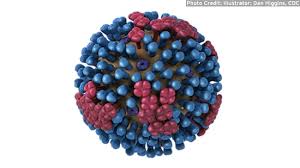
Fourth Case of H5N1 Avian Flu Confirmed in U.S. Dairy Worker
Amid an ongoing outbreak of bird flu among dairy cows, U.S. health officials have confirmed a fourth case of H5N1 avian flu in a dairy worker. The U.S. Centers for Disease Control and Prevention (CDC) reported the latest case, involving a worker in Colorado, on Wednesday.
According to the CDC, the infected individual experienced only eye symptoms, was treated with the antiviral medication oseltamivir (Tamiflu), and has since recovered. The person worked on a dairy farm where cows had tested positive for the H5N1 virus.
This recent case follows three earlier human bird flu infections. The first two cases, reported in Texas and Michigan, presented mild eye discomfort linked to conjunctivitis or "pink eye," and both patients recovered. The third case, also in Michigan, involved more typical respiratory symptoms but the patient has also recovered after treatment.
So far, H5N1 has not demonstrated easy human-to-human transmission. All four cases involved individuals who had prolonged contact with infected dairy cows. The CDC maintains that the current risk of H5N1 to the general public remains low but emphasizes the need for precautions among those exposed to infected animals.
Global health experts are increasingly concerned about the spread of H5N1, a strain previously confined to birds, now infecting mammals such as seals, dolphins, cows, and alpacas. There is worry that a mutation could occur, enabling the virus to spread more easily among mammals, including humans.
For now, the primary risk is to those with extended exposure to infected animals, such as dairy workers. The CDC advises these individuals to wear personal protective equipment when interacting with infected animals and to monitor their health for ten days following exposure. Additionally, the CDC recommends avoiding unprotected contact with animal waste, bedding, unpasteurized milk, or materials that may have been contaminated by infected animals.
The safety of raw milk is a particular concern, as pasteurization effectively kills the H5N1 virus. A recent study found high levels of avian flu virus in raw milk even after refrigeration. However, the U.S. Food and Drug Administration (FDA) reported that flash pasteurization used in the dairy industry effectively eliminates the bird flu virus. These findings are preliminary and have not yet been published in a peer-reviewed journal.
While the general public remains at low risk, these developments highlight the importance of strict safety measures for those working closely with infected animals.